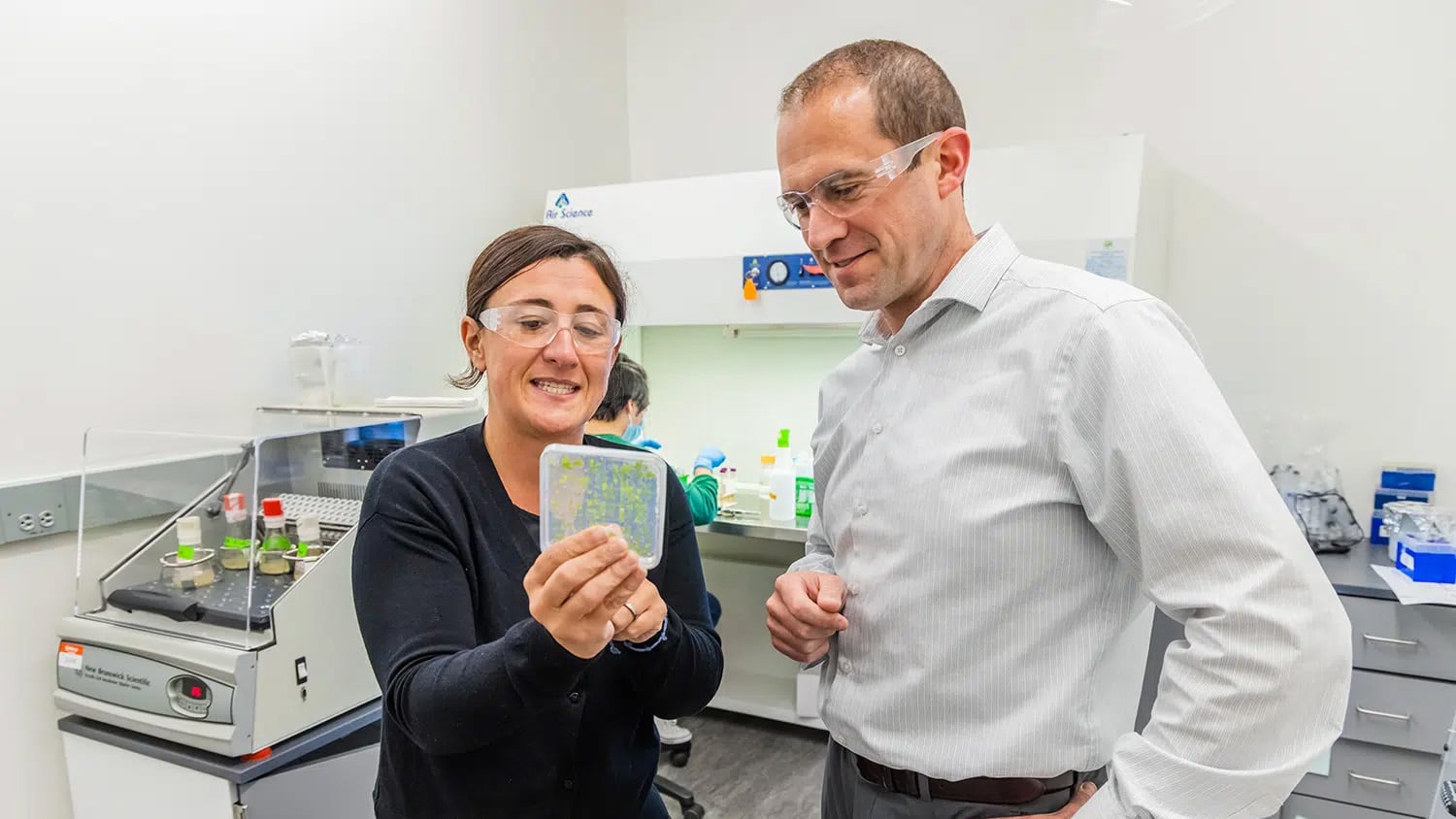A Single Challenge, a Suite of Experts
The global population is growing, and feeding this expanding population poses a formidable challenge. How will emerging diseases, and global climate and environmental changes affect the crops that we rely on? How do we provide a growing global population with nutrient-rich foods in the face of shrinking arable land? These are important questions, and NC State has pulled together a multi-disciplinary team of researchers with expertise in everything from plant genetics to computer engineering to come up with answers.
NC State has received an INSPIRE grant from the National Science Foundation to better understand how plants will respond to various stresses, such as a lack of essential nutrients. In particular, the project investigates how a plant called Arabidopsis thaliana responds when deprived of iron, which is essential to the plant’s biological processes. However, a more significant goal of the project is to improve our understanding of the specific proteins (or “transcription factors”) that control how the plant responds to environmental conditions.
“That information will be used to create computer models that can give us insight into how plants respond to various stresses,” says Cranos Williams, the lead investigator on the project and an assistant professor of computer engineering. “Ultimately, we want to create models that can help us determine the best practices for breeding plants with increased nutritional value and the best agricultural practices for different conditions – ranging from how growers should respond to stresses related to climate change or new plant diseases to farming on marginal crop land.”
Williams’ work focuses on using computational models to understand the behavior of complex biological systems. And project collaborator Joel Ducoste, a professor of environmental engineering, has experience in creating models of cellular processes. That’s the kind of know-how you need to develop mathematical and computer models that can predict how plants will respond to various stresses – but that’s not all you need. For instance, you also need someone who understands the plants themselves.

Enter Terri Long, an assistant professor of plant biology who uses genomics, molecular biology and genetics to determine how the activity of specific genes triggers physiological changes in plants. When certain genes are “switched on” they produce transcription factors that can then “switch on” other genes, triggering a range of behaviors in the plant. Long is already working to determine which of these transcription factors are triggered when Arabidopsis is deprived of iron, and how these various groups of genes interact with each other. All of that information will go into the creation of a prototype model – which Williams and Ducoste can test by comparing model predictions to the results that Long is seeing in her biology lab.
But running complex models like this one can take a long time, requiring a significant amount of computing power. This is where James Tuck comes in. An assistant professor of computer engineering, Tuck is working with the team to help streamline the model’s computation in order to make it run more quickly and efficiently.

“Without modifications, the model could take weeks or years to run, making the resulting calculations effectively useless,” said Tuck. “It’s like the problem of weather prediction—if the calculation takes so long that the storm hits before the prediction is made, it’s not useful.” Efficient implementations that leverage hundreds to thousands of computers are projected to solve large models in minutes or days, and that means finding answers quicker and more efficiently.
By sharing expertise in computer modeling, plant biology, genetics, biological systems and high-speed computing, the researchers hope to shed light on issues related to the most fundamental of real-world problems: ensuring that the human population has enough to eat.
And this is only a taste of things to come. Through the Chancellor’s Faculty Excellence Program, NC State is planning to apply this sort of interdisciplinary approach to a range of additional research areas, from medicine to forensic science.
- Categories:


